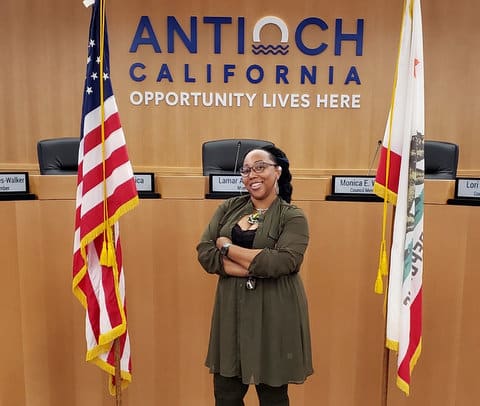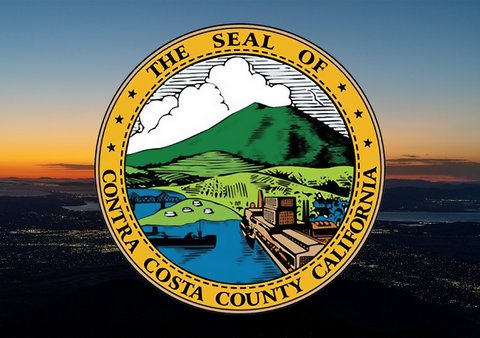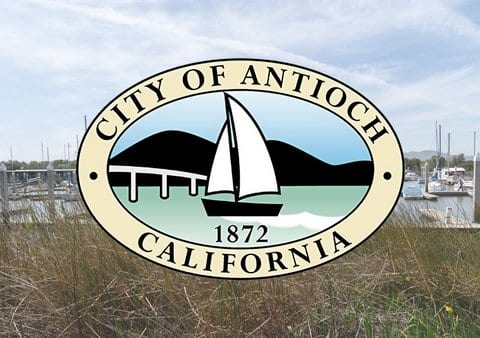
13 Dec Q&A: Torres-Walker Wants to Keep ‘Expanding Our Ideas Around Public Safety’

(Campaign photo via tamishaforantioch.com)
Interview, Malcolm Marshall
Editor’s note: Tamisha Torres-Walker was first elected to represent District 1 on the Antioch City Council in 2020. She appears to have narrowly won reelection, beating her nearest opponent by just three votes in the November midterm. However, the vote is set for a recount at the request of second-place finisher Joy Motts. Recently, Torres-Walker spoke with The CC Pulse, looking ahead to her apparent second term and discussing public safety and other community needs. This conversation has been edited for length and clarity.
The CC Pulse: What did you learn during your first term as council member that you will use to be better this time around?
Tamisha Torres-Walker: In my first term, which was a two-year term — I had to run while governing — I learned it’s the relationships that matter. I came into the position in an effort to create relationships, learn about the needs of each department, meeting with department heads to assess the needs and their feelings and why they came to work in Antioch. It helped me establish genuine relationships with staff. When people felt more interested, they were willing to actually support the initiatives; you were moving forward. I am definitely going to continue that.
The other thing I learned was that the city really hadn’t built deep community relationships, not the ones that matter anyway, for community-based public policy that meets the community’s needs, versus a feather in your cap kind of policies, which may or may not create significant change. But it’s something that you can tout throughout your political career. I learned there’s a lot of that in politics. And I learned I don’t want to be that kind of politician. I will continue to push and move for policies and initiatives that will meet the actual needs of the community, based on what the community is telling me is necessary to increase a better quality of life for poor people, people of color and Black people in Antioch.
RP: What are the biggest challenges facing your district, and how do you hope to address them?
TTW: Infrastructure. Since new development started in southeast Antioch, there was a lot of neglect around the proper infrastructure in District 1, which is the older part of Antioch. Addressing the infrastructure needs and the needs around connectivity. When I say connectivity, I mean Wi-Fi and phone service can sometimes, by far, be the worst in this part of town. As well as roads, repairs, lighting, infrastructure, and deeper investment in parks and green space. I want to focus on public safety by environmental design. We have a lot of traffic concerns and issues throughout the city, but especially in District 1. Doing public safety by environmental design means addressing public safety issues like crime, as well as traffic concerns, by using the natural environment around you. Lighting, medians, turning lanes, roundabouts, things like that to address traffic issues but also public safety issues. When you have a street that’s pitch black at night, because the lighting is poor, that creates the condition for crime.
Violence and crime are in every community. But certain neighborhoods in District 1 have been either over-policed or under-policed with very little investment in quality of life, like the Sycamore corridor. I’m going to continue to focus efforts there around crime, violence, quality of life, resources, jobs and opportunities.
People are like, crime is up, and it’s crazy. And it is, but the reality is that these neighborhoods have been neglected for more than 30 years. So it isn’t that it’s up just because it’s up; it’s also because there has been very little investment in addressing the root cause of violence in these communities.
Third is how do we deeply invest in businesses in District 1 and throughout the city — invest in a deep enough way in business and industry to create jobs. When you invest in it, especially when you invest in small businesses, you invest in jobs.
Those are some of the top things I want to continue to address in my next term.
RP: What is your top priority as you begin your term?
TTW: Violence prevention, for sure. I fought really hard and stayed up many nights writing the proposal and the budget for California’s Violence Prevention Act funds that we got, $1.8 million, which is just a drop in the bucket compared to how much funding is out there to address violence. As a council member who has committed the last 13 years of my life to violence prevention, it just made me equipped to be a person in the city who understood that process and the partners we needed to bring around the table to make that happen.
RP: In light of two recent high-profile violent incidents, how safe do you believe Antioch is today, and what changes do you think are needed in the city’s public safety departments?
TTW: There are some neighborhoods where people feel safe in the city of Antioch, and there are some neighborhoods where people don’t. When we talk about public safety, we always talk about policing and fire and all of those things, but public safety is bigger than that.
The thing that I’ve been doing in my first term, which I will continue to do in my second term, is expanding our ideas around public safety. What does it really mean to make the community safer and have people in the community feel safer, addressing all issues that could potentially fall into the realm of public safety?
People have been really concerned about the numbers in the police department, and rightly so. When I moved to Antioch, I think it was maybe 75 officers, and I thought with a population as large as Antioch that there would be more, so that was a little concerning. I think that at one point we did get to 115 officers. But with all of the challenges facing the police department right now, that number wasn’t sustainable. With the police reform efforts happening and the installation of a new police chief who understands community-policing strategies to get to the root cause of violence while working in communities, we can significantly reduce violence over time.
I don’t think any city has prevented violence, but I think cities can manage violence in a way where people don’t experience it on a daily basis. We have now established a new department of public safety and community resources, which is the expansion of my thinking around public safety. Investing in housing, youth and seniors, through grants, programs and working with nonprofits to meet the needs that we can’t meet directly as a public entity, increasing public-private partnerships, investing deeply in community-based violence prevention efforts that get at the root cause of violence, engaging the community in a different way so people feel safe to report crime but also understand how to be more involved in local government.
RP: Your relationship with the police department was at the center of much of the controversy around you during your first term. What’s your relationship with the Antioch Police Department like today?
TTW: I could run a gas pipeline under every house in this city and jeopardize the environmental safety of every resident and child for decades to come, and nobody would blink an eye. But when I started talking about holding the police department accountable, people were quick to mobilize.
Today, the relationship is developing. I’ve had some better experiences now than in the past. I’m hoping those experiences aren’t just afforded to me because of the position I’m in. My hope is that those experiences can be afforded to every resident, despite their income, race, religion, sexual orientation, etc. I wouldn’t say that we’re in a kumbaya moment, but we’re trying to figure this thing out.
RP: What specific ideas do you have for how the city can support residents who are struggling with housing costs or the cost of living, in general?
TTW: I was a big champion first coming on City Council, saying we need tenant protections across the board: rent stabilization, just cause for eviction, landlord harassment prevention policies, revamping the city’s policy related to habitability. Whether I’m paying market rate or what we consider quote, unquote, affordable, my roof shouldn’t be falling in on me.
Those are some of the top things when we talk about being able to keep housing affordable, but also making it accessible and habitable is really important. Obviously, we want to meet our goal of developing median income housing, or what we consider to be, quote, unquote, affordable housing. I think we need a lot more lower-income housing, but we also need to look into vacancy rates in our city and make housing available, rather than just sitting idle, waiting for the market to go up.
RP: What will you do as a council member to support small businesses?
TTW: One of the things I’ve done already as a council member is supported investment in facade improvement for small businesses in District 1, to be able to secure funding from the city to beautify their businesses and bring the businesses up with the standard in other parts of the city, as well as investment in small businesses for LGBTQI+ folks, women- and minority-owned business investment. Minorities, people of color, women, veterans, all of these people, they’re the fastest ones to create businesses, but they also have the least access to capital and all of these other avenues. So they’re also the fastest declining when they do get a business off the ground.
I have invested in that, as well as invested more in our Chamber of Commerce, and building a deep relationship with the chamber and the city to make sure that we continue the relationship, we continue investments, and we make it easier for small businesses to thrive, but also to come to fruition.
One of the other things that could help small businesses is if more people work locally and spent money locally and continue to support small businesses, so they don’t go under. The more people working and spending locally, then that’s also an investment in small businesses. So putting people to work will also help small businesses.
RP: What do you think some Antioch residents don’t know or understand about you?
TTW: I think some people are not used to people of color, particularly Black people and maybe Black women, speaking their minds or have having independent thought and being very vocal on issues that impact people of color and poor people. I think people have been used to a go along, get along strategy — just put your head down and try to do the best that you can and ignore all of the other things as white noise, when really these things are critical to the quality of life of some of us in this city who have for a very long time stayed quiet about the injustices that have occurred.
What people don’t understand about me is that I’m an organizer. People assume I’m operating on my own because I might not have had a conversation with them. But I’ve had conversations with several people who have told me why I need to move a policy or why I need to address issues that other people are afraid to tackle and take on. I make people uncomfortable, and I’m OK with that. Sometimes change is disruptive, necessarily so, sometimes so that we can really start to address some of the deeper issues we have here in our city and get to some resolution, reconciliation and create a better quality of life for everybody and not just some.





No Comments